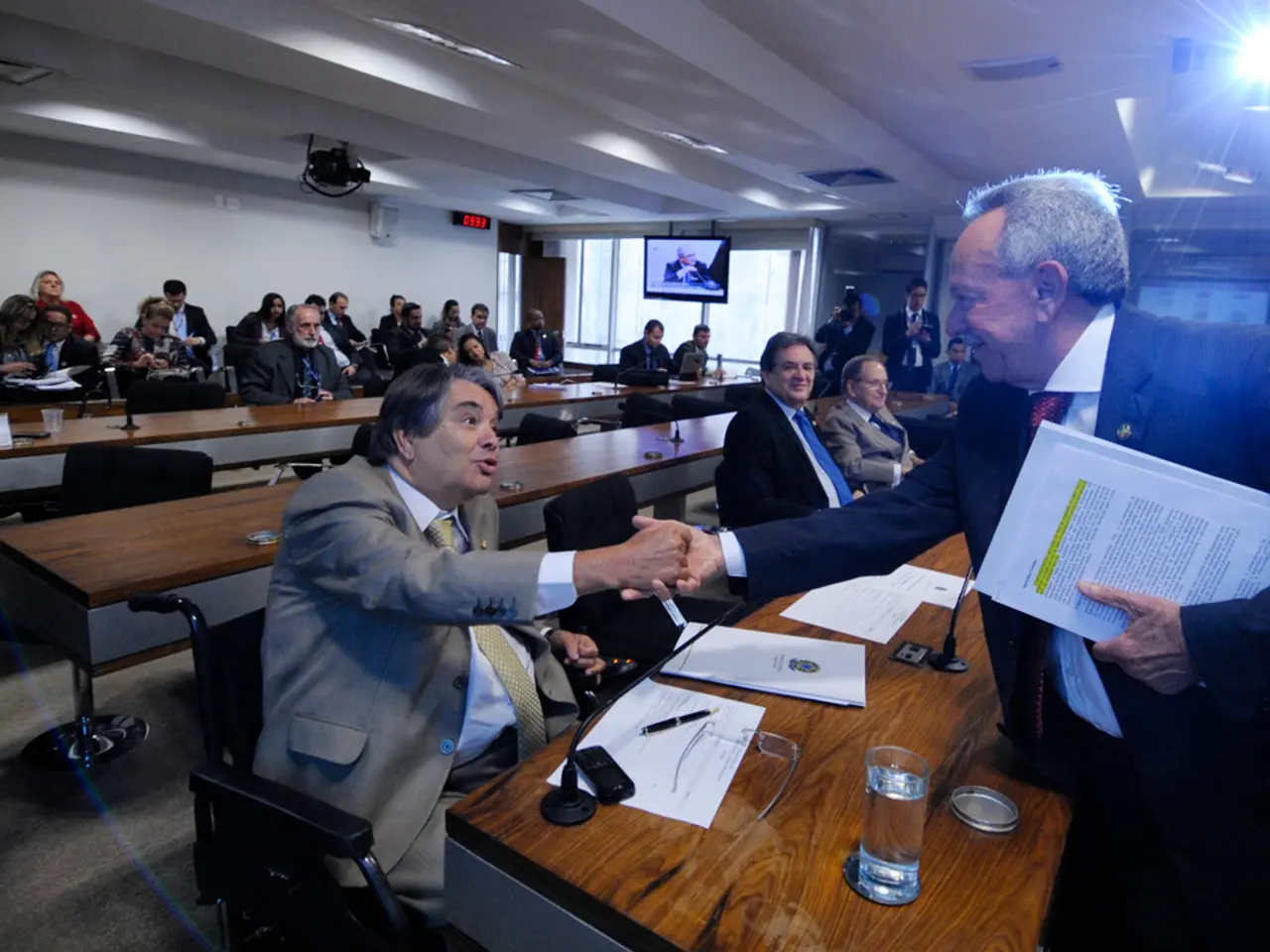Majority of Respondents in INSA Survey Express Concern Over Silenced Opinions, with 84% Believing Individuals Remain Voiceless Due to Fear of Reprisals
In the past eight months, Germany has seen a significant increase in perceived self-censorship due to fear of consequences. According to a recent survey, 84% of Germans believe that people are holding back their opinions, reflecting a widely perceived censorious climate[1].
This trend is particularly prevalent among supporters of right-wing populist and leftist parties. For instance, 76% of Alternative for Germany (AfD) supporters, 69% of leftist-populist BSW party supporters, and 65% of Die Linke voters have reported self-censoring[1]. In contrast, supporters of more establishment parties such as the Christian Democrats (CDU), Social Democrats (SPD), and Greens have lower self-censorship rates, with 47%, 42%, and 41% reporting self-censorship, respectively[1].
This increase in self-censorship aligns with the "spiral of silence," a social phenomenon identified by German political scientist Elisabeth Noelle-Neumann. This phenomenon occurs when individuals suppress their views if they perceive them to be in the minority or fear backlash from an aggressive minority[3][5]. The effect is amplified when criticism or social sanctions arise, causing people to remain silent to avoid costs from expressing opinions.
Recent high-profile cases in Germany, including fines and prison sentences for online expressions deemed offensive or extremist, underscore a climate where free speech is constrained by legal and social consequences. This has likely contributed to increased self-censorship across society[2].
The issue of freedom of speech is not limited to any specific demographic. Two-thirds of those under 30 say they have felt they could not express their opinion freely, compared to only 38% of those over 70. Moreover, more East Germans (59%) than West Germans (53%) have had such an experience[1].
The agreement on the importance of freedom of speech is very high, regardless of socio-demographic characteristics. The majority of the population should be convinced that freedom of speech in our country is unrestricted. Freedom of speech in our country is seen as a compelling reason to support and defend it.
Politics, media, and society as a whole should take the issue of freedom of speech seriously. A good culture of debate and acceptance of a broad range of opinions is necessary to convince the majority of the population that freedom of speech in our country is unrestricted. The issue of freedom of speech is as important as migration since 2015 and the coronavirus since 2020.
Collectively, politics, media, and society have a role in ensuring a good culture of debate and acceptance of a broad range of opinions. The unrestricted nature of freedom of speech in our country is a significant factor in supporting and defending it. The issue of freedom of speech has the potential to become as defining as migration since 2015 and the coronavirus since 2020.
Politics and general news are crucial arenas for fostering a culture of debate and acceptance of a broad range of opinions. The issue of freedom of speech, with its significance similar to migration since 2015 and the coronavirus since 2020, demands collective action from politics, media, and society to uphold and defend it.







